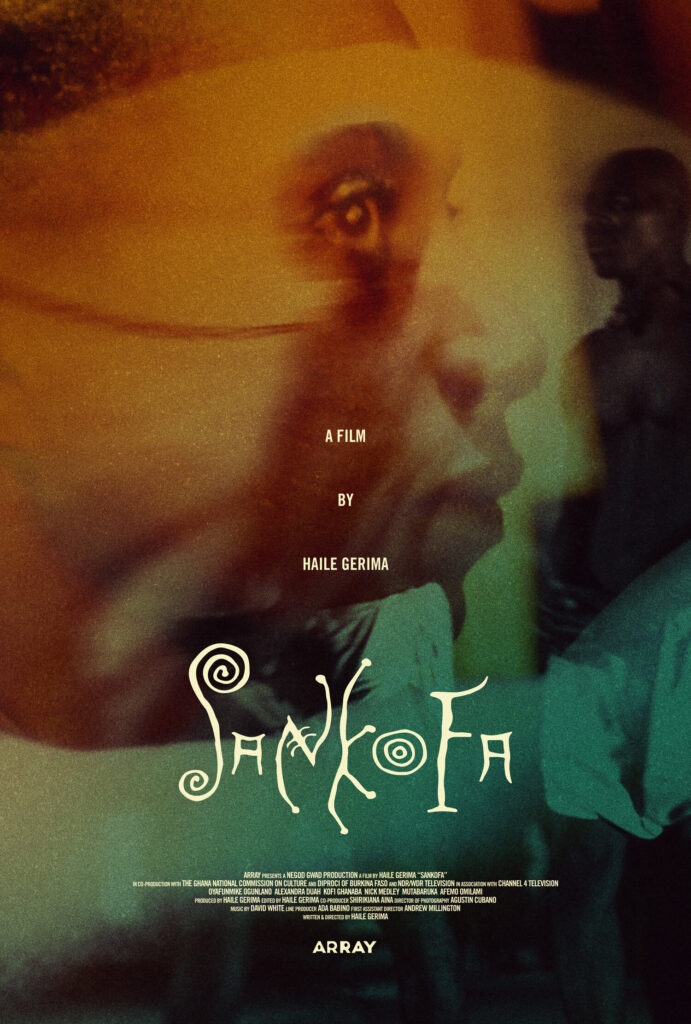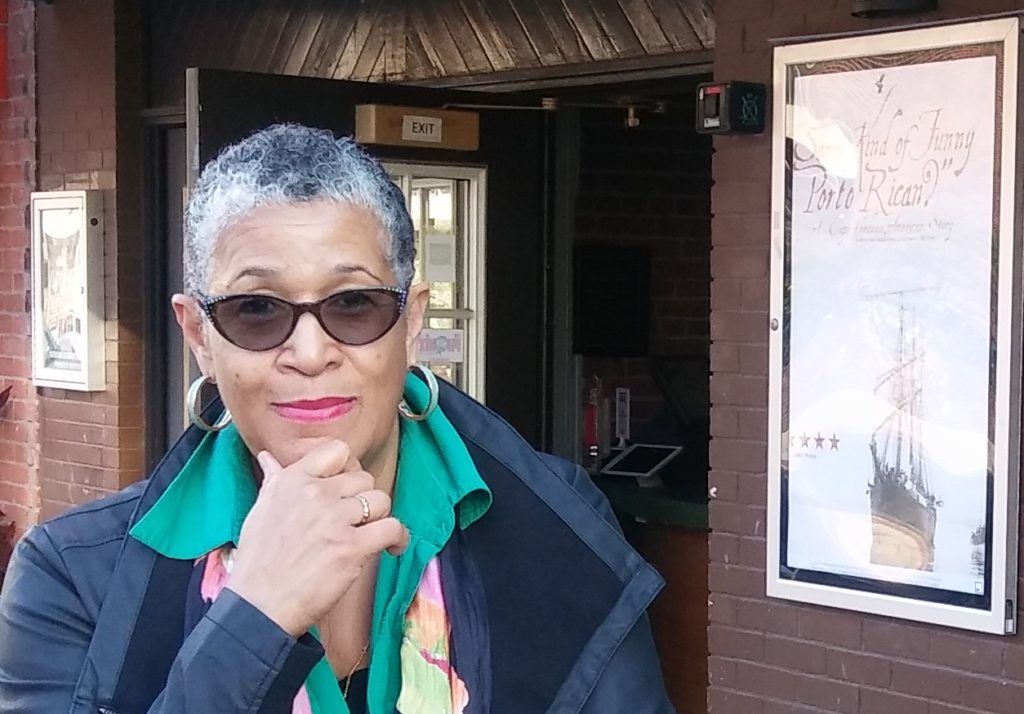Looking Back, Moving Forward Through Black Cinema

Haile Gerima’s 1993 film, Sankofa, is, among other things, a call to the African Diaspora to remember their history and who they are.
One way to honor that call is by making sure that films like Sankofa and other work by Black filmmakers is screened, celebrated, and contextualized for younger generations, so Professor of Media and Africana Studies Claire Andrade-Watkins, who worked on the film as an assistant to the producer, partnered with Ava DuVernay’s ARRAY collective to do just that this semester in her Post-Colonial Cinema class.
On Tuesday, February 22, Andrade-Watkins and the Marlboro Institute for Liberal Arts and Interdisciplinary Studies will host a special screening and virtual celebration of the film for the Emerson community, featuring a panel of scholars, digital archivists, and librarians.
“The challenge in finding and telling the story of BIPOC [communities] is that many of the cultures, particularly the African Diaspora, are based on oral, not written, history,” Andrade-Watkins said. “Secondly, lack of material culture, archives, documents, means there are no records. History through the lens of systemic racism writes about, not for, BIPOC [communities].
“The Sankofa panel … [will] discuss the importance of digital archives, the emerging field of digital humanities, and how digital tools are used to reconstitute the absent narratives of the African Diaspora,” she said.
In Sankofa, a contemporary African American fashion model on a shoot near the infamous Elmina Slave Castle in Ghana is mystically transported to a plantation in the antebellum South, where she, now an enslaved woman named Shola, must decide whether to continue living in subjugation or resist. The title comes from a word of the Akan people of Ghana, and means to “go back to the past to in order to move forward,” according to the ARRAY learning companion.

Andrade-Watkins’ non-circulating, private archive of primary source materials, documents, photos, media, archival film, video and audio, and artifacts — some from the making and distribution of Sankofa — are invaluable assets in the reconstitution of iconic moments of the cinema of the Africana Diaspora and overlooked history of BIPOC communities.
She had already planned to teach the film in her Spring Post-Colonial Cinema course, but last fall, a former student of hers, Jaelen Ogadhoh ’21, a writer for ARRAY learning companions, put her in touch with Tammy Garnes, ARRAY’s vice president of education and understanding.
Founded by filmmaker Ava DuVernay (When They See Us, Selma, 13th), ARRAY is an independent film distribution and educational collective aimed at amplifying films by people of color and women. The organization is hosting a “28 Days of Sankofa” celebration, screening it in 28 cities throughout February, and has developed a learning companion for educators to use in teaching the film. Andrade-Watkins jumped at the chance to partner with them for her class.
In a quote on the ARRAY site, Sankofa filmmaker, Gerima, says “Black people, more than any race in the world, are miseducated to think that they can go forward without referencing the past and that is the all-time tragedy.”
Black people are taught to feel ashamed of their history, including that of slavery, Gerima said.
“Personally, in the process of my journey, I discovered the glorious history of the Diaspora Africans to be a very powerful spiritual energy of resistance,” he said.
Panelists for the February 22 celebration include Andrade-Watkins; film archivist, producer, and Brown University lecturer Regina Longo; Western Michigan University Assistant Professor Amy Bocko; Beatrice Pulliam, director of technology and information systems, for the Providence Public Library; and Emerson Assistant Professor Ioana Jucan. The event will be held at 10:00 am; join by registering on Zoom.
Categories